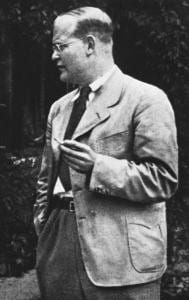Is David Bentley Hart a “Situation Ethicist?” Reflections on Chapter Four of “You Are Gods”
*Note: If you comment here, make sure your comment is relatively brief (no more than 100 words), addressed to me, on topic, civil and respectful (not hostile or argumentative), and devoid of links or photos.*
Some of us are reading David Bentley Hart’s book ‘You Are Gods: On Nature and Supernature.” I have now read Chapter Four “Pia Fraus: Our Words and God’s Truth.” So far, I judge this chapter to be the least enigmatic and most clear and challenging. It deals with ethics.
Some who read the chapter will no doubt come away with the impression that Hart is simply repeating, whether consciously or unconsciously, the “situation ethics” of Joseph Fletcher. Be that as it may, I find this chapter much more congenial with Dietrich Bonhoeffer’s ethics as expressed on at least some chapters of his book “Ethics.” In fact, it makes me wonder if Hart has read “Ethics.” He never mentions Bonhoeffer (or Fletcher).
In the first part of the chapter Hart discusses the fallenness of creation attributing sin and evil to “being on the wrong side of the veil of ‘maya’.” (53) I have speculated here about Hart’s apparent monism and and whether he thinks of evil as illusion. I won’t say this settles it, but I feel somewhat vindicated by this allusion. Still, I have to read the whole book to make up my mind. However, on page 58 Hart refers to creation’s “fallen or deluded condition.” More support for my hypothesis.
The key question this chapter answers is “Is it possible that there are times that our words more faithfully reflect God’s truth because they do ‘not’ conform or correspond to what happens to be the case?” (I put the singular quotation marks around “not” to indicate that it is in italics in the book.) (53) With Bonhoeffer (in “Ethics”) Hart concludes that the answer must be yes. “Sometimes, if we are devoted to Truth, we must deceive.” (59)
Hart agrees with deconstructionist philosopher/theologian John Caputo (without mentioning him) that “Ethics, conceived as a science, can quickly become a demonic nonsense.” (60) (See Caputo’s book “Against Ethics.”)
Here is where Hart echoes Bonhoeffer most clearly: “Ethical theory—or, better, moral theology—serves a good end only if we understand it as something we pursue in order to correct the deficiencies of our love and the injustices of fallen time. It must flow from and, in the end, yield itself up to a spiritual attentiveness to the voice of God in the moment, as it breaks through the silence of this world’s seeming Godforsakenness.” (60)
In this chapter more than most, Hart offers specific examples of what he is arguing for. In this case, he uses the case study of people hiding Jews from the Nazis in the Netherlands during WW2. People who are familiar with Corey Ten Boom’s books and talks about her experiences will no doubt remember the dispute into which her family fell about whether it would be alright to lie to Nazis coming to their house to ask if there were Jews there. Hart uses a different hypothetical example but of the same question. His answer is yes-it would be right to lie. He breaks radically from Kant’s deontological ethics in which lying would always be wrong, even to save a life.
On the last page of this chapter, Hart comes closest to Fletcher: “The law of love is not merely some inflexible ethical rule we rely upon to negotiate the contingencies of … history. Rather, it is a kind of anarchic escape from all such rules into a realm of direct responsibility before reality in its transcendent plenitude.” (61)
This chapter is worth the price of the book. It is an exercise in virtue ethics that also delves briefly into quandry ethics (with the example mentioned above). It is not an exercise in casuistry. It takes the fallenness of creation utterly seriously. It sweeps aside ethics as a science because there are simply too many exceptions to whatever a science of ethics would conclude—because of the brokenness of creation and our collective life under the conditions of the fall.
I would very much like to know if Hart has ever read Bonhoeffer’s “Ethics” because much of this chapter echoes things the German pastor-theologian wrote there. Perhaps great minds simply think alike. I don’t claim to be a great mind, but I came to the same basic conclusions before reading Bonhoeffer or Hart. I can’t say to what extent reading Fletcher during my seminary days influenced me.













